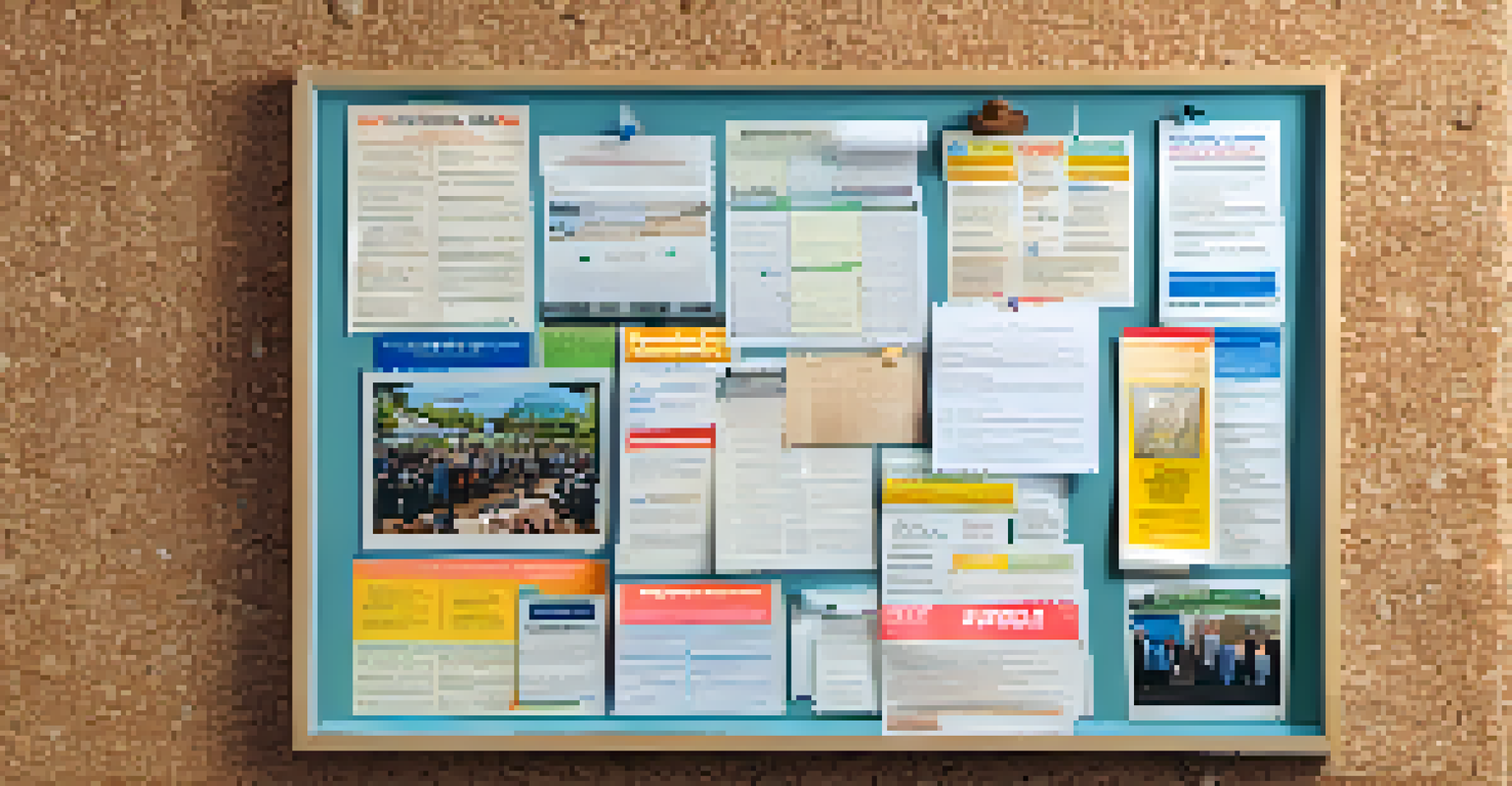How to Effectively Communicate with Your HOA Management

Understanding Your HOA Management's Role and Responsibilities
Before diving into communication, it's crucial to understand what your HOA management does. They oversee community rules, maintenance, and financial management, acting as a bridge between residents and the board. By grasping their responsibilities, you can tailor your communication effectively.
The single biggest problem in communication is the illusion that it has taken place.
Consider your HOA management as the conductor of an orchestra, ensuring every part of the community works in harmony. When you know their roles, you can address your concerns more specifically, whether it’s about maintenance issues or community events.
This foundational knowledge not only enhances your conversations but also fosters a sense of respect and understanding. After all, effective communication is built on a clear understanding of each party's roles.
Choosing the Right Communication Channel
Selecting the appropriate channel for communication is key to ensuring your message is received effectively. Email, phone calls, and face-to-face meetings each have their own benefits. For urgent matters, a phone call might be best, while non-urgent issues can be addressed through email.

Think of communication channels as different tools in a toolbox; each serves a unique purpose. By choosing wisely, you can enhance clarity and ensure your concerns are addressed promptly.
Understand HOA Management Roles
Knowing the responsibilities of your HOA management helps tailor your communication effectively.
Additionally, many HOAs have dedicated platforms or portals for resident communication. Familiarizing yourself with these can streamline your interactions and allow for quicker responses.
Crafting Clear and Concise Messages
When reaching out to your HOA management, clarity is paramount. A well-structured message helps convey your thoughts without confusion. Start with a brief introduction, state your concern directly, and provide any necessary details.
Effective communication is 20% what you know and 80% how you feel about what you know.
Imagine you're sending a postcard—there's limited space, so you must prioritize what’s most important. This approach not only respects the time of the management team but also increases the likelihood of a prompt response.
Using bullet points or numbered lists can also make your message easier to digest. Clear communication fosters quicker resolutions and builds a positive rapport with your HOA management.
Being Respectful and Professional in All Interactions
Respect and professionalism should be at the forefront of your interactions with HOA management. Remember, they are there to serve the community, and a courteous tone goes a long way. Even if you’re frustrated, maintaining a level of professionalism can lead to more constructive conversations.
Think of it like navigating a delicate dance; a respectful approach sets the tone for collaboration. A positive demeanor can often turn a challenging situation into an opportunity for teamwork.
Choose Effective Communication Channels
Selecting the right communication method enhances clarity and ensures your concerns are addressed promptly.
Moreover, establishing a respectful relationship can pave the way for smoother interactions in the future. People are more likely to help those who treat them with kindness and respect.
Documenting Your Communication for Future Reference
Keeping a record of your communications with HOA management is essential. This documentation can help track responses, agreements, and follow-ups, ensuring nothing slips through the cracks. It’s like keeping a diary of your interactions; you’ll always know where things stand.
When issues arise, having a documented history can serve as a reference point for discussions. This practice not only enhances accountability but also provides clarity for all parties involved.
Additionally, if problems escalate, having a clear record can be invaluable for further discussions or mediation. It’s your safety net in the world of HOA communications.
Following Up on Your Communications
After initial contact with your HOA management, don’t forget to follow up if you haven’t received a response. A gentle reminder can often prompt action on pending issues. Think of it as watering a plant; sometimes it needs a little extra attention to thrive.
Timing is key here—waiting a reasonable amount of time before following up shows patience while still keeping your concerns on their radar. A simple email or call can demonstrate your continued interest in resolving the matter.
Follow Up and Stay Engaged
Regular follow-ups and participation in community events strengthen relationships with HOA management.
Following up also reinforces the seriousness of your concern, making it clear that you value the issue at hand. Consistent communication can help build a reputation as an engaged and responsible resident.
Engaging in Community Meetings and Events
Participating in community meetings and events is a great way to connect with your HOA management. These gatherings provide an opportunity to voice concerns, ask questions, and foster relationships in a collaborative environment. It’s like joining a book club; sharing ideas strengthens community bonds.
Engagement in these settings not only allows for direct communication but also helps you understand the community’s broader goals and challenges. You’ll gain insights that can enhance your discussions with management.

Moreover, being an active participant in the community can lead to better communication overall. The more familiar you are with the people managing your community, the easier it becomes to address issues as they arise.